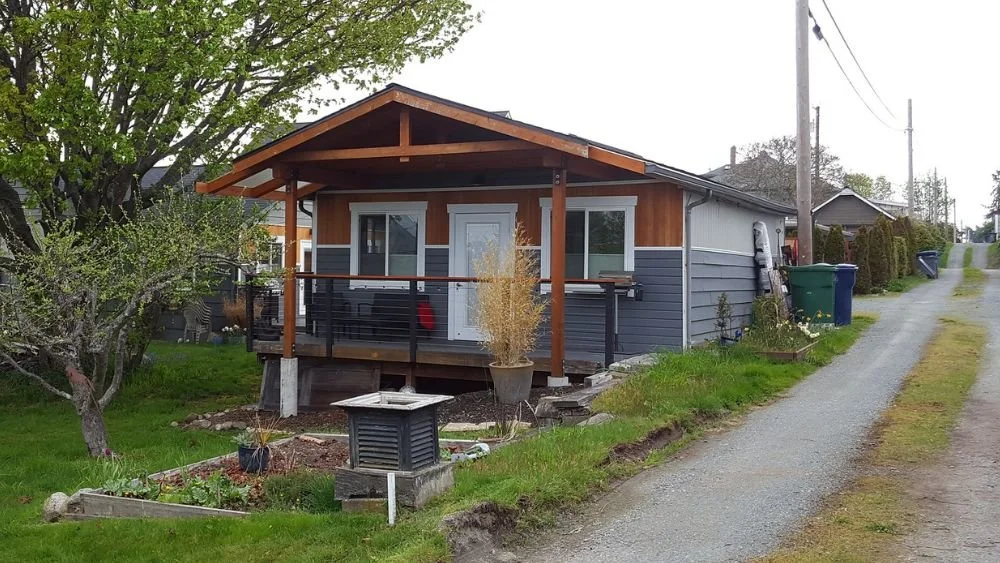In 2016, They Won the Strongest Town Contest. Today, They’re Even Stronger.
Downtown Carlisle, PA, following a road diet project.
In March 2016, Carlisle, Pennsylvania—a borough just to the west of the state’s capital, Harrisburg—stood head to head with Hoboken, New Jersey, in a championship round for a contest many of its inhabitants thought it had no chance of winning. They were facing off in that year’s Strongest Town Contest.
In 2016, Hoboken was cementing its reputation as the poster child for density and urban traffic calming. Yet, throughout the competition, the Pennsylvania town of 19,000 stood out for its tight-knit community unafraid to ask hard questions. Neither place was perfect (though it merits noting that perfection has never been the point of the Strongest Town Competition). What landed both communities in the championship round was their values and how they exercise those values every day.
Ultimately, Carlisle earned the gold and what won the town over for voters continues to define its approach today. Brenda Landis, the borough’s deputy mayor and the person responsible for entering it into the contest, believes Carlisle is even stronger today than it was in 2016.
Where Is Carlisle Today?
“I have been pushing for zoning reform since being elected to Council in 2017,” Landis shared. “Especially as it relates to density, parking, and building mixed-use/mixed-income communities by allowing more uses.”
As of December 2022, Landis has a dedicated venue for her advocacy: a bi-weekly land-use reform committee. “It’s actually my favorite meeting,” she laughs, adding that it takes place every other Friday at 8 a.m.
What the land-use reform committee has enabled Carlisle’s local leaders and borough staff to do is examine what decades-old codes are categorically defining the region today. “We looked to see where things were allowed (or not) and tried to identify areas of reform to make thoughtful, useful, and equitable changes that move Carlisle in the direction we want for our future,” Landis added.
The approach is incremental. Sometimes, she wishes she could eliminate parking mandates, for example, rather than just reform them. Yet, the advantage to taking things a little slower is that, step-by-step, Carlisle’s leaders can demonstrate that change isn’t as scary as many expect it to be. “We’re advocating for changes that encourage gentle density, that take a step,” Jared Woolston, the director of sustainable community and economic planning in Carlisle, explained. “Not completely change the context.”
Furthermore, interrogating land-use ordinances has uncovered a matrix of intersecting regulations and artifacts that, for reform champions like Landis, were both creating unnecessary paperwork for officials and a headache for residents. “So we were going to originally just look at zoning ordinance stuff,” Woolston mentioned. “And just as we were starting out, we got a couple of complaints that made us look at the local permitting process for…keeping chickens. Turns out, it was just way too expensive.”
Those complaints came in at a time when egg prices skyrocketed nationally. Local, small-scale farmers were uniquely positioned to help offset the shortage, yet a lengthy and expensive permitting process stood in the way for Carlisle’s chicken-coop owners. “So, one of our first projects was knocking that down,” Woolston added. “And we picked up some new small-scale egg farmers along the way, which was the best outcome.”
The committee’s unexpected first mission set the stage for its work. “It’s all about adaptability,” Landis underscored. When a longstanding factory abruptly shut its doors over the summer, the Committee was prepared to hit the ground running with plans for rezoning and redevelopment. Otherwise, the structure would’ve likely stood vacant, blighting its surroundings. “That’s ultimately why we have the committee.”
Landis wants to ensure the borough can respond swiftly to whatever needs emerge, much like they did with the egg farmers or the factory, while preserving what makes Carlisle so special. Meeting every other week makes that easier, but the trust local leaders are cultivating with the public makes it possible. In fact, where they were anticipating resistance and hesitancy—like with parking reform—locals are actually asking for more.
“The feedback I got at one of the public meetings on the question of parking reform was that many people wanted even less requirements than we worked out,” Woolston shared. “I didn’t anticipate that!”
Like Carlisle, your place is a hidden gem. Use Strong Towns as a megaphone to celebrate your town: apply for this year’s Strongest Town Contest today!






Asia (pronounced “ah-sha”) Mieleszko serves as a Staff Writer for Strong Towns. A dilettante urbanist since adolescence, she's excited to convert a lifetime of ad-hoc volunteerism into a career. Her unconventional background includes directing a Ukrainian folk choir, pioneering synaesthetic performances, photographing festivals, designing websites, teaching, and ghostwriting. She can be found wherever Wi-Fi is reliable, typically along Amtrak's Northeast Corridor.